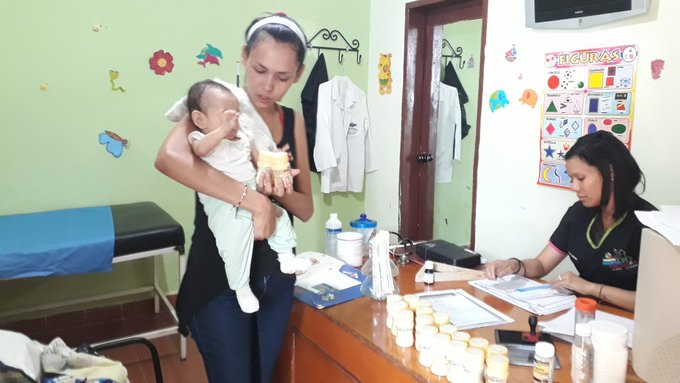The Venezuelan NGO FundaRedes deemed extremely serious and alarming the situation of vulnerability and defenselessness affecting women and girls from indigenous communities and rural areas at the border due to the risk of falling victim to different forms of modern slavery by irregular armed groups and criminal organizations and the obvious lack of interest on the part of the Venezuelan State in guaranteeing their fundamental rights.
According to the most recent bulletin published by the organization, women in rural border areas and indigenous communities experience a situation of constant marginalization, which adds up to physical safety and food security problems, lack of transportation, failures or absence of public services, restricted access to healthcare, violence and oppression.
“The Venezuelan State is responsible for the systematized violence against rural women by failing to prevent sexual and labor exploitation that mount to slavery conditions, as well as other forms of violence that have become common in the rural areas of border states amid the lenient eye of State security officials and agents who sometimes act in collusion with the groups that exercise control over the female population”, the study states.
FundaRedes also warns that illegal mining has propped up sexual and labor slavery against women.
“The Orinoco Mining Arc has become a breeding ground for criminal activities such as human trafficking and the labor and sexual exploitation of women and girls, who are victims of all kinds of violations amid their situation of precarity attributable to the Venezuelan State”.
According to the testimony of FundaRedes activists in the southern Venezuelan state of Bolívar, in the vicinity of the confluence of the Aro and Orinoco rivers has witnessed all kinds of excesses, including the prostitution of girls by three different guerrilla groups that recruit them with the offer a better life, marriage, farming land or work with the Colombian guerilla group National Liberation Army (ELN). “They have forced girls, some of whom have escaped, but it’s hard, people are afraid because they can kill them”.
According to different human rights organizations, the state of Bolívar has become a point of transit and destination for women and girls victims of crimes such as trafficking and sexual exploitation, servitude, forced labor, mutilation, disappearance and even murder in areas of the Orinoco Mining Arc, under the complicit eye of officials stationed in at least 17 control and security checkpoints.
Women lack protection from the State
According to FundaRedes, while the situation of vulnerability experienced by women both in the Orinoco Mining Arc and on the Colombian-Venezuelan border is truly worrying, the indifference of the State is even more alarming.
“Every day women and girls die at the hands of trafficking mafias, irregular armed groups and criminal gangs made up in many cases of Venezuelan police and military officers who should be in charge of protecting and guaranteeing their human rights”.
Faced with these situations of violence, ill-treatment and defenselessness, FundaRedes considers that the Venezuelan State is failing to guarantee adequate living conditions for Venezuelan women who live and work in mining and rural areas along Venezuela’s borders, and therefore fails to comply with the provisions of the Constitution, the Organic Law on the right of women to a life free of violence and the Convention on the elimination of all forms of discrimination against women.
Read the full bulleting in Spanish HERE
Translated by José Rafael Medina




